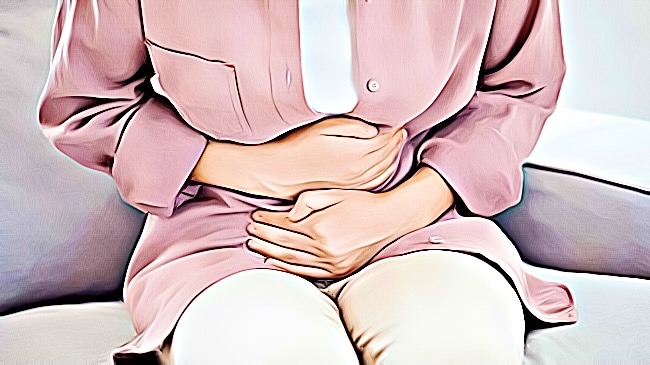Benzodiazepines are a type of psychotherapeutic drug that is commonly used to treat various mental conditions like anxiety and depression. While this is great for those suffering severely from said mental conditions, benzodiazepines are unfortunately addictive. This can quickly lead to dependency, even for those that strictly follow the prescription they’ve been given by their doctors.
If you are unfamiliar with benzodiazepines, then you should be more familiar with their brand names like Xanax and Valium. Regardless, when using these types of drugs, you need to be careful, as addiction is a dangerous thing!
With that in mind, are you dealing with what is called “benzo belly?” If so, that’s a withdrawal symptom! To understand this thoroughly, let us first delve into benzodiazepines, talking about what it is, what it does, the symptoms of addiction, and more:
What Exactly Are Benzodiazepines?
A benzodiazepine is a type of anxiety reducer created from benzos and diazepam. There are many different forms of benzos, including triazolam, flurazepam, and lorazepam.
When talking about benzodiazepines, you typically hear them being referred to as a tranquilizer. This is because benzos are often used to help calm people down in a variety of different ways. For example, they can be used to treat anxiety, insomnia, and even muscle spasms. They can also help with symptoms of seizures.
However, given their addictive nature and how easy it is to get a prescription for them, they are also very widely used as recreational drugs.
How Do Benzodiazepines Work?
What makes benzodiazepines so addictive is how they work in the body, namely, how they work within our central nervous system.
Benzodiazepines work by altering the chemicals in the brain to alleviate symptoms of depression, anxiety, and more. But, these drugs also have a side effect that is often unwanted. The side effect is that they leave you feeling a little less aware, a little less alert, and a little more sedated, which makes it easy for you to lose track of time.
The reason for this is because benzodiazepines are a depressant and the drugs work by stimulating the GABA receptors in your brain. GABA is a chemical that is important for regulating the nervous system’s activity.
The more benzodiazepines you take, the higher the dose and higher the frequency of intake, the more your brain becomes used to the feelings and chemical reactions that the drug gives you, and the more your brain becomes used to these feelings and chemical reactions, the more difficult it becomes to stop taking the drug even when you don’t need it.
The result? You end up taking a lot of the drug to recreate the same feelings initially. This is the leading factor of addiction, and that’s why it is so hard to break out of it once you get addicted.
What Are The Symptoms Of Benzodiazepine Addiction?
The symptoms of benzodiazepine addiction are going to be pretty obvious to you once you find yourself addicted. But, there are a few more subtle signs to look out for.
A common symptom that you can look for when it comes to telling if you are addicted to benzodiazepines is that you are taking higher doses of the drug. You might find yourself taking more and more of the drug to get rid of the same feelings of depression or anxiety.
Another symptom is that you can’t quit the drug when you want to. You might feel like you’ve taken too much, and you want to stop, but you think it is pointless to try because you know you’ll end up taking it again in a few months.
Finally, the biggest sign is obvious: a relapse. A relapse happens when you stop taking a drug for a while, but then you return to it. Think of it as a slip, but this slip results in a full-blown return to it. Now, when you relapse, you can’t stop taking it even though you know you don’t need it anymore. You try to stop, but you just can’t. It’s this cycle that can make you feel truly trapped in the addiction, and it can even worsen your mental health conditions, if any.
What Are The Symptoms Of Benzodiazepine Withdrawal?
The symptoms of benzodiazepine withdrawal can range far and wide, depending on how many weeks or months you were taking it and how much you were taking.
A common symptom of withdrawal is the feeling you get when you stop taking the drug: you start to notice that your anxiety is back, that you’re feeling nervous, and start to panic a little. Your feeling of low self-esteem comes back, and you start to feel a little depressed. It is a rebound effect.
Another common symptom is that you’re feeling shaky. You might feel like you’re going through the flu or have a fever. This also depends on how much you were taking, but if you are experiencing a significant amount of depression or anxiety because of it, you will probably get a little shaky.
The rest of the symptoms come from the fact that your brain is normalizing its chemical reactions, and your central nervous system is getting back on track. When you take a drug, it messes up your body from how it normally functions, and when you stop taking the drug, your body needs to get back to its normal process so that it can function normally again.
So, What Is Benzo Belly?
Benzo Belly is a term used to describe the little-known physical side effects that come from benzo addiction. Benzo belly is just one of the many withdrawal symptoms you can experience, and benzo belly symptoms can include but are not limited to diarrhea, constipation, and appetite changes.

How Do I Successfully Overcome Benzodiazepine Addiction?
Because benzodiazepine addiction is such a dangerous addiction to have, it can be very difficult to break out of. You need to have a strong desire to quit the drug. Otherwise, you run the risk of relapsing. Fortunately, quitting isn’t impossible, and there are many who has successfully broken their addiction.
That being said, as with addiction to any drug, it is a long and difficult road to recovery. There are some that simply want to quit the addiction while they are under the influence of the drug, but this can be dangerous. You should be in a controlled environment, and you should not be taking the drug while you are trying to get clean.
So, how do you quit taking benzodiazepine drugs? The best way is by talking to a trained addiction specialist who can help you learn about what to expect, how to stay strong, and how you can work through the cravings. They can offer you a plan you can follow to reduce how much you take, and depending on your progress, that plan will continuously reduce your intake until you finally stop taking it!
At the end of the day, your ability to overcome your addiction depends on how committed you are to it. Of course, support from trained professionals and loved ones will go a long way in helping you quit, but really, it is up to you to do so. Just remember that quitting by yourself and quitting cold turkey isn’t safe due to the withdrawal symptoms you may face. As such, we will always recommend quitting with the help of a trained professional to ensure not only are you quitting safely but effectively!
Conclusion
Benzodiazepines are actually a very useful drug. It is widely used to treat some very serious conditions. However, because it is so widely used for so many things, it is also very easy to get a prescription for it. However, because it is so widely used for so many things, it is also very easy to get a prescription for it. Abuse of the drug is pretty widespread, especially among teenagers.
But, it is for those reasons that it is important to be aware of the symptoms and dangers of benzodiazepines. It is easy to get addicted, and it is easy to relapse on the drug!
So, if you are addicted to benzodiazepines, it is incredibly important to seek help as soon as possible. The earlier you tackle this problem, the easier it will be for you to snap out of the addiction. Just be sure to work with a trained professional for assistance to ensure your road to recovery is a safe and effective one!
Source: https://www.betterhealth.vic.gov.au/health/healthyliving/tranquillisers

